A new wave of deadly attacks by Boko Haram and its Islamic State-backed faction ISWAP has reignited fear in Nigeria’s North-East, particularly in Borno, Yobe, and parts of Adamawa State. Since January 2025, over 34 attacks have been documented, leaving hundreds dead, thousands displaced, and security operatives scrambling to contain the escalating violence. Hussaini Kafi in Kano reports on the fresh deadly wave of insurgents’ attacks in the country.

The resurgence has prompted grave concerns from security analysts, rights groups, and state officials—including a stark warning from Borno State Governor Babagana Zulum, who admitted last week that the state is “losing ground” to terrorists.
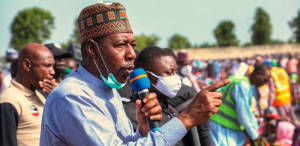
“We are gradually losing the grip on territories we once recovered,” Zulum said during a security meeting in Maiduguri. “Terrorists are becoming emboldened again, moving with heavy arms, attacking communities, and recruiting members unhindered. If urgent steps are not taken, we risk a reversal of all the gains we have made.”
Rising Toll of Attacks
Between January and mid-April 2025, Boko Haram and ISWAP have conducted at least 34 confirmed attacks, including:
9 raids on military and police facilities in Bama, Gwoza, and Damboa.
13 mass killings in rural communities including Mafa, Konduga, and Kukawa.
5 attacks on humanitarian convoys and aid facilities.
7 targeted assassinations of local officials and traditional leaders.
A single massacre in Mallam Fatori in February left more than 60 villagers dead when insurgents disguised in military uniforms stormed the community overnight.
The attacks have rekindled the humanitarian crisis in the region. According to the United Nations Office for the Coordination of Humanitarian Affairs (OCHA), more than 34,000 people have been newly displaced since January.
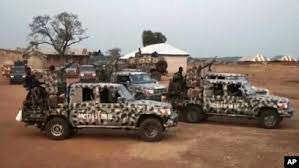
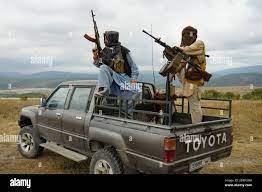
CHRICED: Security Chiefs Underperforming.
In the wake of the bloodshed, a prominent Kano-based rights group, the Resources Centre for Human Rights and Civic Education (CHRICED), has blamed the renewed violence on lapses in leadership and intelligence within Nigeria’s security agencies.
Speaking to AHR correspondent in Kano, CHRICED’s Senior Program Officer, Omoniyi Adewoye, described the performance of Nigeria’s security chiefs as increasingly dismal.
“It is obvious that the current set of security chiefs have begun to relent in the discharge of their duties,” he said. “Initially when they were newly appointed, they were performing, probably to justify their positions, but that zeal has faded.”
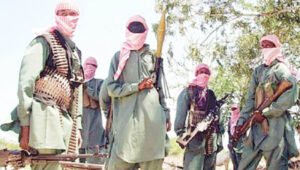
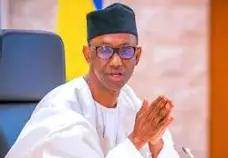

Adewoye faulted agencies like the Department of State Services (DSS) and the military intelligence units for failing to preempt attacks and dismantle terror cells before they mature.
“How come the DSS and military intelligence couldn’t detect and crush these emerging terror groups? What happened to pre-emptive action?” he asked, emphasizing the role poor intelligence plays in the resurgence of violence.
He also noted that the rise of new terror outfits and increasing incidents of kidnapping point to a systemic failure. “Kidnappers and terrorists now operate with impunity because they know security agencies are overstretched and largely ineffective.”
Africa Health Report: Boko Haram Using TikTok to Spread Propaganda
Adding a dangerous digital layer to their operations, Boko Haram has recently turned to TikTok to spread extremist propaganda and psychological warfare, according to findings from the Africa Health Report, an independent research and analysis journal focused on conflict and public health across Africa.
The report, based on social media analysis and field data, reveals that Boko Haram and ISWAP are using short-form TikTok videos to showcase their firepower, taunt Nigerian troops, celebrate attacks, and glorify jihadist ideology. Some of these videos are edited with dramatic effects, set to nasheeds (Islamic chants), and captioned in Hausa and Arabic to appeal to regional viewers.

“What we’re seeing is an intentional, calculated use of social media by terrorist cells to win hearts, create fear, and recruit youth,” said Dr. Fatima Yunusa, a digital security analyst cited in the Africa Health Report. “These aren’t just videos; they’re weapons in an ideological war.”
The report warns that TikTok’s algorithms—designed to push viral content—may inadvertently boost the reach of these propaganda clips before moderators can take them down. Several videos allegedly created by Boko Haram were online for days, garnering thousands of views before being removed.
“It’s psychological warfare. The goal is to show that the state is weak and the insurgents are in control,” Yunusa explained, urging the Nigerian government to invest in cyber-intelligence and tech collaboration with platforms like TikTok to block extremist content early.
The Political Dimensions
Experts warn that the resurgence may not be purely military in nature but also politically motivated, with violence often increasing as Nigeria approaches general elections.
“There is always a spike in violence around election cycles,” Adewoye of CHRICED noted. “It’s a trend since 1999. Politicians, in their desperation, are believed to exploit or even sponsor instability to advance their interests.”
He further called attention to Bello Turji, a notorious bandit and terrorist commander who remains at large, suggesting that high-level political protection might be shielding such figures.
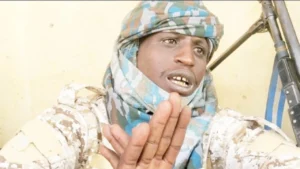
“The fact that notorious terrorists like Bello Turji roam free despite intelligence on their whereabouts tells you there’s powerful backing—maybe even within the government or military,” he warned.
Fear of Vigilantism and Regional Security Forces
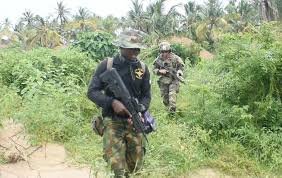
In the face of renewed violence and what many describe as a crippled national security system, voices are growing louder for regional security outfits to complement federal forces. CHRICED has called on governors in the North to consider forming outfits similar to the South-West’s Amotekun.

“We are fast approaching the point where communities may begin to arm themselves,” Adewoye cautioned. “If the government cannot ensure security, people will naturally resort to self-defense.”
Already, some communities in Adamawa and Borno are organizing local vigilante units, albeit informally. This trend raises both hope and concern—hope for localized resistance to terrorism and concern about potential abuses or ethnic violence.
International Response and Humanitarian Setback
The international community is watching closely. Several humanitarian groups, including Médecins Sans Frontières (Doctors Without Borders), have suspended operations in high-risk zones. The UN has warned that continued attacks could worsen the malnutrition crisis and disease outbreaks in IDP camps where health services are now overstretched or suspended.
As the crisis escalates, CHRICED is calling on President Bola Tinubu to overhaul the security leadership and bring in fresh, capable hands with renewed motivation and vision.
“It may be time for the president to bring in new leadership to strengthen our security architecture,” Adewoye said. “We cannot keep using the same tactics, the same people, and expect different results.”
Col. Abdulhameed Bako (rtd), a former counterterrorism commander, echoed the sentiment: “We’ve spent too much time being reactive. We need proactive leadership, robust intelligence gathering, and coordination with regional allies.”
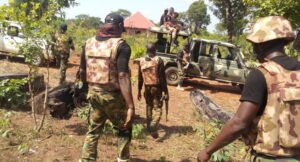
Conclusion
The resurgence of Boko Haram is a wake-up call that Nigeria’s war on terror is far from over. With sophisticated use of social media, strategic rural incursions, and clear failures in federal security response, the insurgents have shown they are evolving—both in ideology and tactics.
As citizens grow more anxious and humanitarian needs surge, only bold, urgent reforms in security leadership, digital intelligence, and political accountability can reverse the tide. The question now is: Will Abuja act before it is too late?



